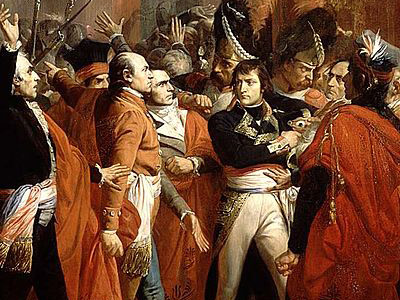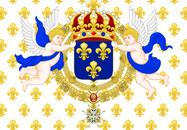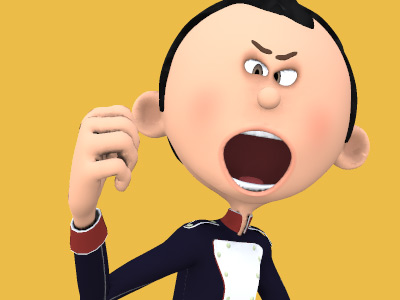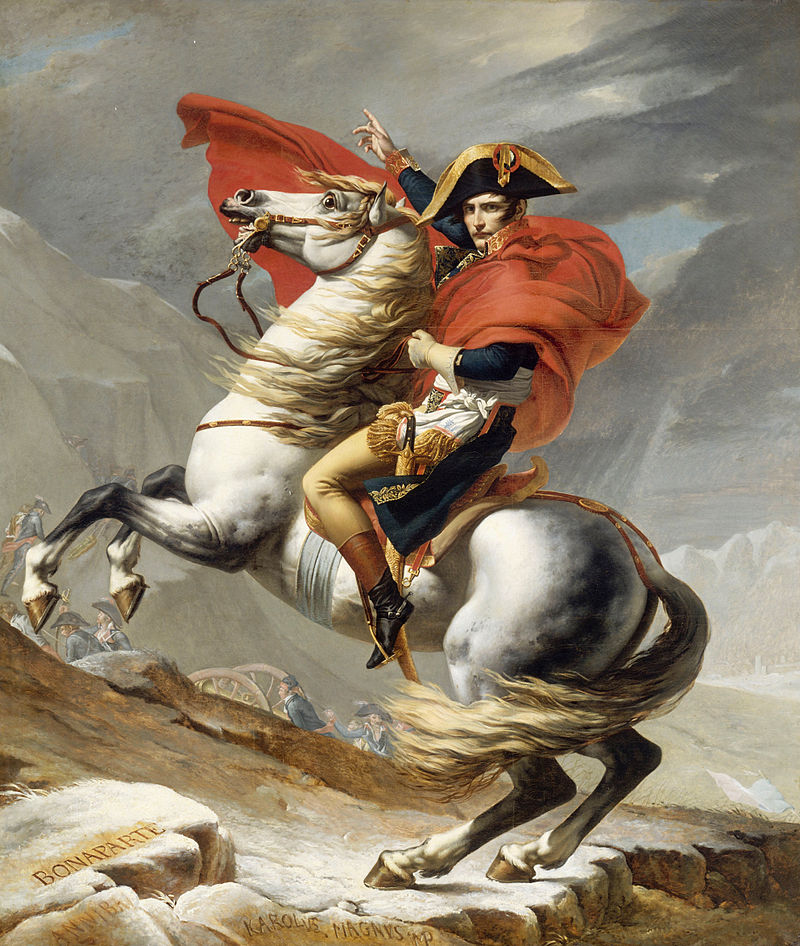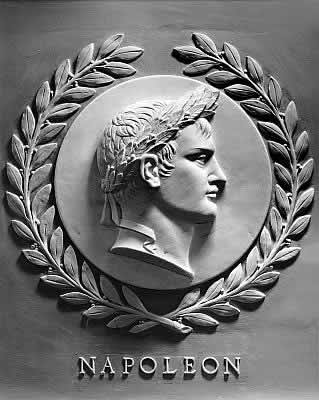Napoleon Bonaparte (1769-1821)
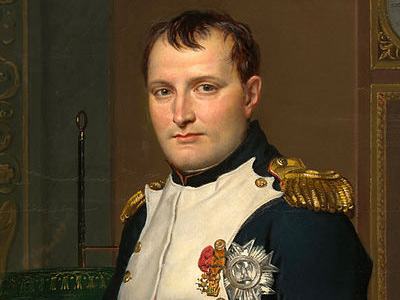
First Italian Campaign
Two days after the marriage, Bonaparte left Paris to take command of the Army of Italy. He immediately went on the offensive, hoping to defeat the forces of Piedmont before their Austrian allies could intervene. In a series of rapid victories during the Montenotte Campaign, he knocked Piedmont out of the war in two weeks. The French then focused on the Austrians for the remainder of the war, the highlight of which became the protracted struggle for Mantua. The Austrians launched a series of offensives against the French to break the siege, but Napoleon Napoleon Bonaparte (1769-1821), was a French military and political leader who rose to prominence during the French Revolution and led several successful campaigns during the French Revolutionary Wars. As Napoleon I, he was Emperor of the French from 1804 until 1814, and again in 1815. One of the greatest commanders in history, his wars and campaigns are studied at military schools worldwide. Napoleon Bonaparte » defeated every relief effort, scoring victories at the battles of Castiglione, Bassano, Arcole, and Rivoli. The decisive French triumph at Rivoli in January 1797 led to the collapse of the Austrian position in Italy. At Rivoli, the Austrians lost up to 14,000 men while the French lost about 5,000.
Napoleon Bonaparte (1769-1821), was a French military and political leader who rose to prominence during the French Revolution and led several successful campaigns during the French Revolutionary Wars. As Napoleon I, he was Emperor of the French from 1804 until 1814, and again in 1815. One of the greatest commanders in history, his wars and campaigns are studied at military schools worldwide. Napoleon Bonaparte » defeated every relief effort, scoring victories at the battles of Castiglione, Bassano, Arcole, and Rivoli. The decisive French triumph at Rivoli in January 1797 led to the collapse of the Austrian position in Italy. At Rivoli, the Austrians lost up to 14,000 men while the French lost about 5,000.
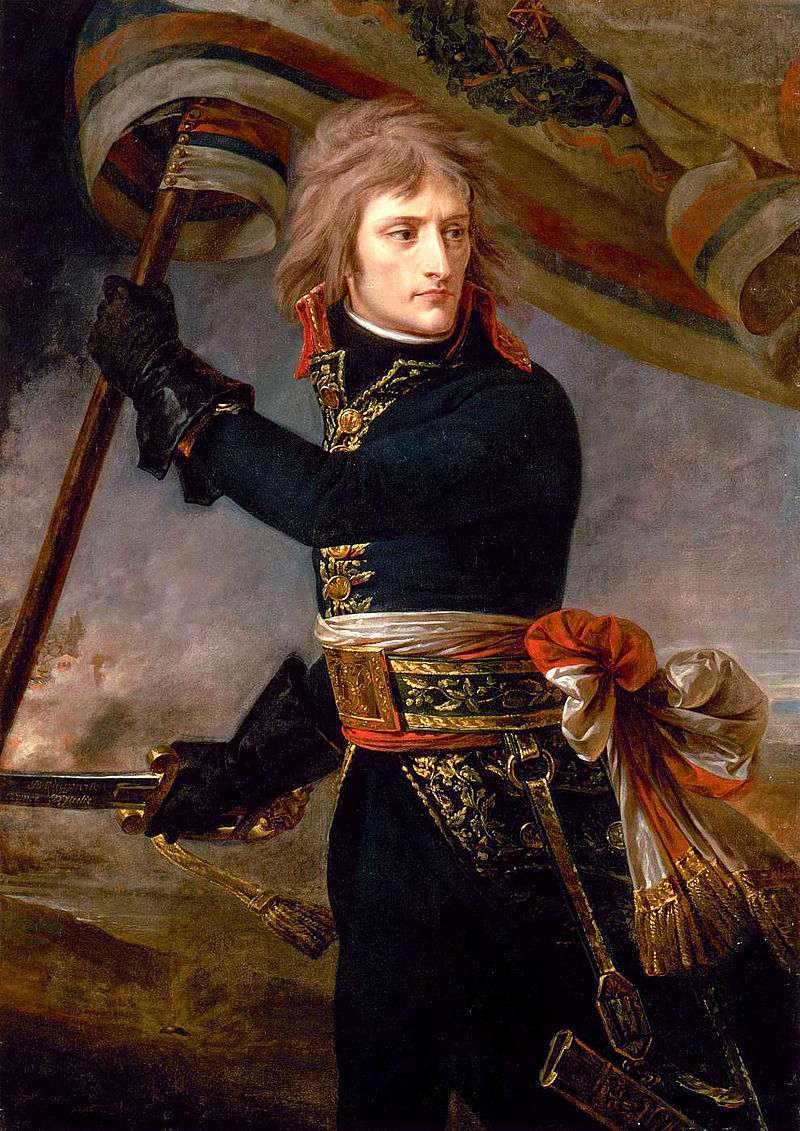
Bonaparte at the Pont d'Arcole, by Baron Antoine-Jean Gros, (ca. 1801), Musée du Louvre, Paris
The next phase of the campaign featured the French invasion of the Habsburg heartlands. French forces in Southern Germany had been defeated by the Archduke Charles in 1796, but the Archduke withdrew his forces to protect Vienna after learning about Napoleon's assault. In the first encounter between the two commanders, Napoleon pushed back his opponent and advanced deep into Austrian territory after winning at the Battle of Tarvis in March 1797. The Austrians were alarmed by the French thrust that reached all the way to Leoben, about 100 km from Vienna, and finally decided to sue for peace. The Treaty of Leoben, followed by the more comprehensive Treaty of Campo Formio, gave France France, officially the French Republic is transcontinental country predominantly located in Western Europe and spanning overseas regions and territories in the Americas and the Atlantic, Pacific and Indian Oceans. France reached its political and military zenith in the early 19th century under Napoleon Bonaparte, subjugating much of continental Europe and establishing the First French Empire. control of most of northern Italy and the Low Countries, and a secret clause promised the Republic of Venice to Austria. Bonaparte marched on Venice and forced its surrender, ending 1,100 years of independence. He also authorized the French to loot treasures such as the Horses of Saint Mark.
France, officially the French Republic is transcontinental country predominantly located in Western Europe and spanning overseas regions and territories in the Americas and the Atlantic, Pacific and Indian Oceans. France reached its political and military zenith in the early 19th century under Napoleon Bonaparte, subjugating much of continental Europe and establishing the First French Empire. control of most of northern Italy and the Low Countries, and a secret clause promised the Republic of Venice to Austria. Bonaparte marched on Venice and forced its surrender, ending 1,100 years of independence. He also authorized the French to loot treasures such as the Horses of Saint Mark.
His application of conventional military ideas to real-world situations enabled his military triumphs, such as creative use of artillery as a mobile force to support his infantry. He stated later in life: "I have fought sixty battles and I have learned nothing which I did not know at the beginning. Look at Caesar; he fought the first like the last."
Napoleon Napoleon Bonaparte (1769-1821), was a French military and political leader who rose to prominence during the French Revolution and led several successful campaigns during the French Revolutionary Wars. As Napoleon I, he was Emperor of the French from 1804 until 1814, and again in 1815. One of the greatest commanders in history, his wars and campaigns are studied at military schools worldwide. Napoleon Bonaparte » could win battles by concealment of troop deployments and concentration of his forces on the "hinge" of an enemy's weakened front. If he could not use his favourite envelopment strategy, he would take up the central position and attack two co-operating forces at their hinge, swing round to fight one until it fled, then turn to face the other. In this Italian campaign, Bonaparte's army captured 150,000 prisoners, 540 cannons, and 170 standards. The French army fought 67 actions and won 18 pitched battles through superior artillery technology and Bonaparte's tactics.
Napoleon Bonaparte (1769-1821), was a French military and political leader who rose to prominence during the French Revolution and led several successful campaigns during the French Revolutionary Wars. As Napoleon I, he was Emperor of the French from 1804 until 1814, and again in 1815. One of the greatest commanders in history, his wars and campaigns are studied at military schools worldwide. Napoleon Bonaparte » could win battles by concealment of troop deployments and concentration of his forces on the "hinge" of an enemy's weakened front. If he could not use his favourite envelopment strategy, he would take up the central position and attack two co-operating forces at their hinge, swing round to fight one until it fled, then turn to face the other. In this Italian campaign, Bonaparte's army captured 150,000 prisoners, 540 cannons, and 170 standards. The French army fought 67 actions and won 18 pitched battles through superior artillery technology and Bonaparte's tactics.
During the campaign, Bonaparte became increasingly influential in French politics. He founded two newspapers: one for the troops in his army and another for circulation in France. The royalists attacked Bonaparte for looting Italy and warned that he might become a dictator. All told, Napoleon's forces extracted an estimated $45 million in funds from Italy during their campaign there, another $12 million in precious metals and jewels; atop that, his forces confiscated more than three-hundred priceless paintings and sculptures. Bonaparte sent General Pierre Augereau to Paris to lead a coup d'état and purge the royalists on 4 September—Coup of 18 Fructidor. This left Barras and his Republican allies in control again but dependent on Bonaparte, who proceeded to peace negotiations with Austria. These negotiations resulted in the Treaty of Campo Formio, and Bonaparte returned to Paris in December as a hero. He met Talleyrand, France's new Foreign Minister—who served in the same capacity for Emperor Napoleon—and they began to prepare for an invasion of Britain.
HISTORY
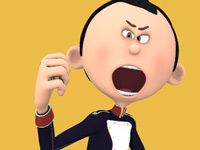
RESOURCES
This article uses material from the Wikipedia article "Napoleon", which is released under the Creative Commons Attribution-Share-Alike License 3.0.
© Stories Preschool. All Rights Reserved.
